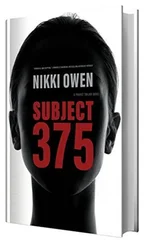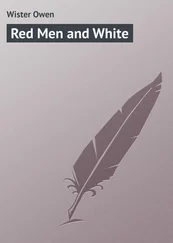Owen Wister - The Virginian
Здесь есть возможность читать онлайн «Owen Wister - The Virginian» весь текст электронной книги совершенно бесплатно (целиком полную версию без сокращений). В некоторых случаях можно слушать аудио, скачать через торрент в формате fb2 и присутствует краткое содержание. Жанр: Вестерн, на английском языке. Описание произведения, (предисловие) а так же отзывы посетителей доступны на портале библиотеки ЛибКат.
- Название:The Virginian
- Автор:
- Жанр:
- Год:неизвестен
- ISBN:нет данных
- Рейтинг книги:4 / 5. Голосов: 1
-
Избранное:Добавить в избранное
- Отзывы:
-
Ваша оценка:
- 80
- 1
- 2
- 3
- 4
- 5
The Virginian: краткое содержание, описание и аннотация
Предлагаем к чтению аннотацию, описание, краткое содержание или предисловие (зависит от того, что написал сам автор книги «The Virginian»). Если вы не нашли необходимую информацию о книге — напишите в комментариях, мы постараемся отыскать её.
The Virginian — читать онлайн бесплатно полную книгу (весь текст) целиком
Ниже представлен текст книги, разбитый по страницам. Система сохранения места последней прочитанной страницы, позволяет с удобством читать онлайн бесплатно книгу «The Virginian», без необходимости каждый раз заново искать на чём Вы остановились. Поставьте закладку, и сможете в любой момент перейти на страницу, на которой закончили чтение.
Интервал:
Закладка:
"All men are born equal," he now remarked slowly.
"Yes," she quickly answered, with a combative flash. "Well?"
"Maybe that don't include women?" he suggested.
"I think it does."
"Do yu' tell the kids so?"
"Of course I teach them what I believe!"
He pondered. "I used to have to learn about the Declaration of Independence. I hated books and truck when I was a kid."
"But you don't any more."
"No. I cert'nly don't. But I used to get kep' in at recess for bein' so dumb. I was most always at the tail end of the class. My brother, he'd be head sometimes."
"Little George Taylor is my prize scholar," said Molly.
"Knows his tasks, does he?"
"Always. And Henry Dow comes next."
"Who's last?"
"Poor Bob Carmody. I spend more time on him than on all the rest put together."
"My!" said the Virginian. "Ain't that strange!"
She looked at him, puzzled by his tone. "It's not strange when you know Bob," she said.
"It's very strange," drawled the Virginian. "Knowin' Bob don't help it any."
"I don't think that I understand you," said Molly, sticky.
"Well, it is mighty confusin'. George Taylor, he's your best scholar, and poor Bob, he's your worst, and there's a lot in the middle — and you tell me we're all born equal!"
Molly could only sit giggling in this trap he had so ingeniously laid for her.
"I'll tell you what," pursued the cow-puncher, with slow and growing intensity, "equality is a great big bluff. It's easy called."
"I didn't mean—" began Molly.
"Wait, and let me say what I mean." He had made an imperious gesture with his hand. "I know a man that mostly wins at cyards. I know a man that mostly loses. He says it is his luck. All right. Call it his luck. I know a man that works hard and he's gettin' rich, and I know another that works hard and is gettin' poor. He says it is his luck. All right. Call it his luck. I look around and I see folks movin' up or movin' down, winners or losers everywhere. All luck, of course. But since folks can be born that different in their luck, where's your equality? No, seh! call your failure luck, or call it laziness, wander around the words, prospect all yu' mind to, and yu'll come out the same old trail of inequality." He paused a moment and looked at her. "Some holds four aces," he went on, "and some holds nothin', and some poor fello' gets the aces and no show to play 'em; but a man has got to prove himself my equal before I'll believe him."
Molly sat gazing at him, silent.
"I know what yu' meant," he told her now, "by sayin' you're not the wife I'd want. But I am the kind that moves up. I am goin' to be your best scholar." He turned toward her, and that fortress within her began to shake.
"Don't," she murmured. "Don't, please."
"Don't what?"
"Why — spoil this."
"Spoil it?"
"These rides — I don't love you — I can't — but these rides are—"
"What are they?"
"My greatest pleasure. There! And, please, I want them to go on so."
"Go on so! I don't reckon yu' know what you're sayin'. Yu' might as well ask fruit to stay green. If the way we are now can keep bein' enough for you, it can't for me. A pleasure to you, is it? Well, to me it is — I don't know what to call it. I come to yu' and I hate it, and I come again and I hate it, and I ache and grieve all over when I go. No! You will have to think of some other way than just invitin' me to keep green."
"If I am to see you—" began the girl.
"You're not to see me. Not like this. I can stay away easier than what I am doin'."
"Will you do me a favor, a great one?" said she, now.
"Make it as impossible as you please!" he cried. He thought it was to be some action.
"Go on coming. But don't talk to me about — don't talk in that way — if you can help it."
He laughed out, not permitting himself to swear.
"But," she continued, "if you can't help talking that way — sometimes — I promise I will listen. That is the only promise I make."
"That is a bargain," he said.
Then he helped her mount her horse, restraining himself like a Spartan, and they rode home to her cabin.
"You have made it pretty near impossible," he said, as he took his leave. "But you've been square to-day, and I'll show you I can be square when I come back. I'll not do more than ask you if your mind's the same. And now I'll not see you for quite a while. I am going a long way. But I'll be very busy. And bein' busy always keeps me from grievin' too much about you."
Strange is woman! She would rather have heard some other last remark than this.
"Oh, very well!" she said. "I'll not miss you either."
He smiled at her. "I doubt if yu' can help missin' me," he remarked. And he was gone at once, galloping on his Monte horse.
Which of the two won a victory this day?
XIII. THE GAME AND THE NATION — ACT FIRST
There can be no doubt of this: All America is divided into two classes, — the quality and the equality.
The latter will always recognize the former when mistaken for it. Both will be with us until our women bear nothing but hangs.
It was through the Declaration of Independence that we Americans acknowledged the ETERNAL INEQUALITY of man. For by it we abolished a cut-and-dried aristocracy. We had seen little men artificially held up in high places, and great men artificially held down in low places, and our own justice-loving hearts abhorred this violence to human nature. Therefore, we decreed that every man should thenceforth have equal liberty to find his own level. By this very decree we acknowledged and gave freedom to true aristocracy, saying, "Let the best man win, whoever he is." Let the best man win! That is America's word. That is true democracy. And true democracy and true aristocracy are one and the same thing. If anybody cannot see this, so much the worse for his eyesight.
The above reflections occurred to me before reaching Billings, Montana, some three weeks after I had unexpectedly met the Virginian at Omaha, Nebraska. I had not known of that trust given to him by Judge Henry, which was taking him East. I was looking to ride with him before long among the clean hills of Sunk Creek. I supposed he was there. But I came upon him one morning in Colonel Cyrus Jones's eating palace.
Did you know the palace? It stood in Omaha, near the trains, and it was ten years old (which is middle-aged in Omaha) when I first saw it. It was a shell of wood, painted with golden emblems, — the steamboat, the eagle, the Yosemite, — and a live bear ate gratuities at its entrance. Weather permitting, it opened upon the world as a stage upon the audience. You sat in Omaha's whole sight and dined, while Omaha's dust came and settled upon the refreshments. It is gone the way of the Indian and the buffalo, for the West is growing old. You should have seen the palace and sat there. In front of you passed rainbows of men, — Chinese, Indian chiefs, Africans, General Miles, younger sons, Austrian nobility, wide females in pink. Our continent drained prismatically through Omaha once.
So I was passing that way also, walking for the sake of ventilation from a sleeping-car toward a bath, when the language of Colonel Cyrus Jones came out to me. The actual colonel I had never seen before. He stood at the rear of his palace in gray flowery mustaches and a Confederate uniform, telling the wishes of his guests to the cook through a hole. You always bought meal tickets at once, else you became unwelcome. Guests here had foibles at times, and a rapid exit was too easy. Therefore I bought a ticket. It was spring and summer since I had heard anything like the colonel. The Missouri had not yet flowed into New York dialect freely, and his vocabulary met me like the breeze of the plains. So I went in to be fanned by it, and there sat the Virginian at a table, alone.
Читать дальшеИнтервал:
Закладка:
Похожие книги на «The Virginian»
Представляем Вашему вниманию похожие книги на «The Virginian» списком для выбора. Мы отобрали схожую по названию и смыслу литературу в надежде предоставить читателям больше вариантов отыскать новые, интересные, ещё непрочитанные произведения.
Обсуждение, отзывы о книге «The Virginian» и просто собственные мнения читателей. Оставьте ваши комментарии, напишите, что Вы думаете о произведении, его смысле или главных героях. Укажите что конкретно понравилось, а что нет, и почему Вы так считаете.










